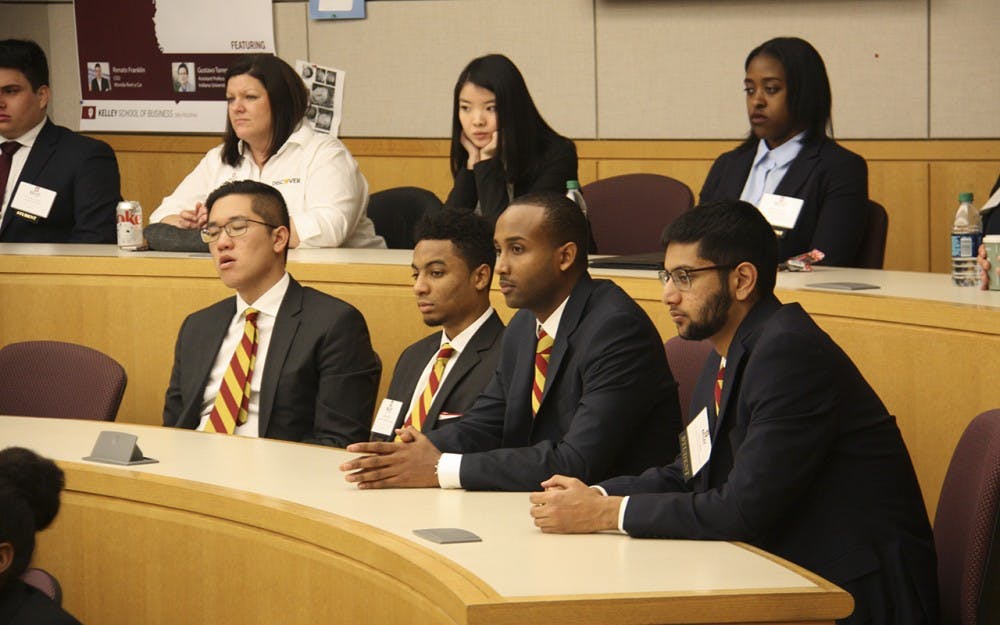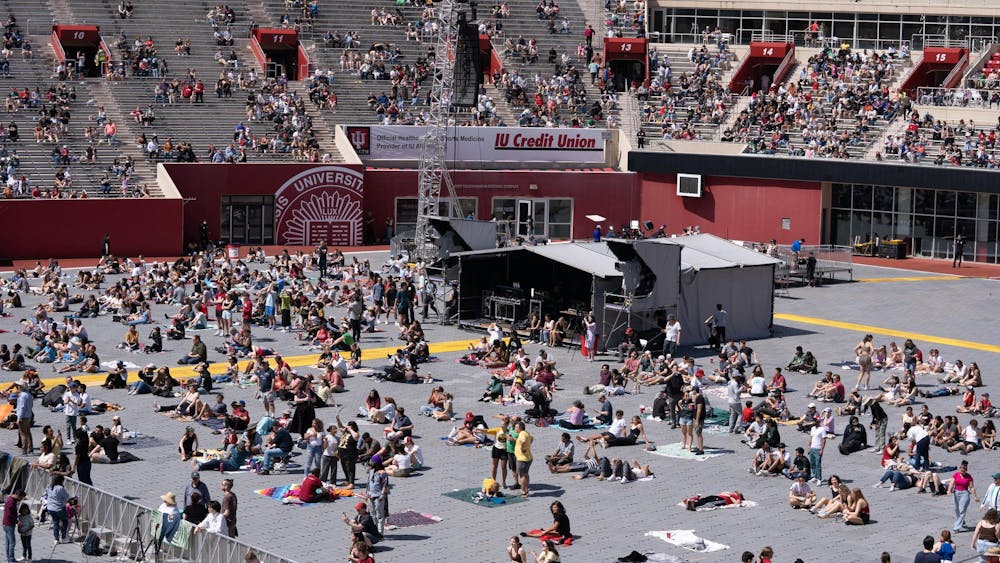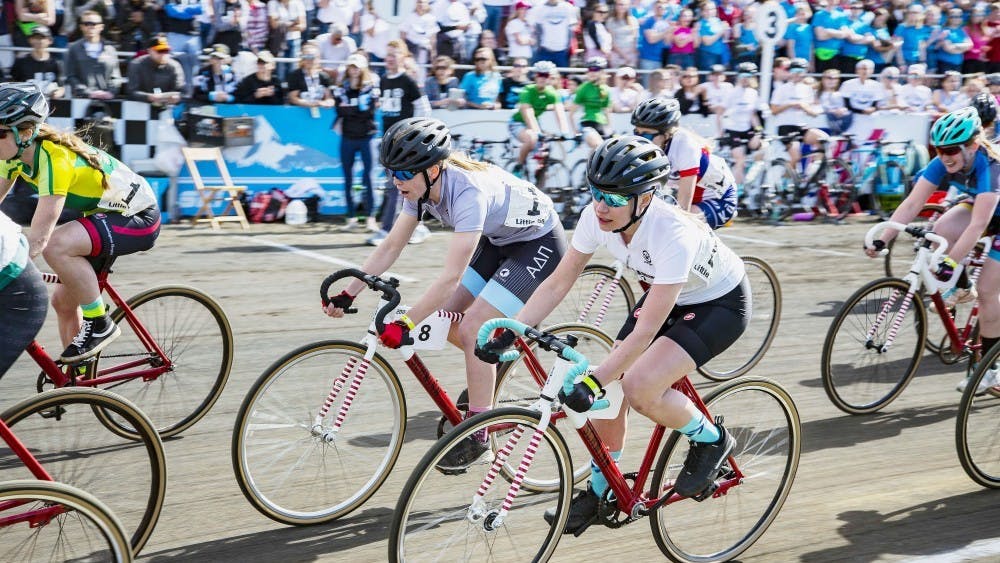Six years in the making and with 34 teams from 25 states, the National Diversity Case Competition at the Kelley School of Business began Friday.
The competition began with a 30-minute question-and-answer session followed by a speed-networking event.
During speed-networking each team of four competitors met with representatives of several companies for five minutes. The companies included Target and General Electric, among others.
“There are a lot of underclassmen so this is a valuable opportunity for them to do both peer and professional networking,” said Laurie Colglazier, chief executive organizer of the NDCC. “The competition gives them a chance to hone their presentation skills and tackle a real problem.”
The NDCC was started six years ago by students to promote diversity in business, which they felt was an unaddressed issue, said Inga Paegle, associate director of marketing for Kelley.
When the competition became too large for the students to handle, the business school assumed control.
There were only 10 teams present during the competition’s inaugural year, Colglazier said. Now the business school has maxed out its resources by paying for housing and travel expenses of participants.
Teams applying each fall must qualify by meeting the following requirements: There can be no more than four members, two members must be from underrepresented populations, and only one senior is allowed on a team.
Before competing against teams from other colleges, IU teams undergo a smaller University-wide case competition during which a problem is proposed and teams find a solution, Colglazier said.
This year the case study involved gender and toys, specifically how stores determine if toys are gender-specific or if they even should make those decisions, Colglazier said.
Every year the national cases are presented by Target; however, the smaller competition cases are proposed by one of the 20 other supporters of the competition. This year General Electric proposed the IU case study.
Teams presented their solutions at 8:30 a.m. Saturday in Hodge Hall. After presenting teams had the option to attend corporate workshops covering a range of topics and organized by all the businesses supporting the competitions.
Winners were judged in two rounds using brackets. Though preliminary rounds were private and took place in various lecture halls, the final round was open to the public and those teams not advancing were encouraged to watch.
The winners were announced later that night.
Only seven of the 34 teams that entered the competition advanced to the finals: University of Cincinnati, University of Michigan, University of Southern California, Louisiana State University, Purdue University IU and the University of Washington.
The IU team comprised all freshman women this year. The team had never competed in the NDCC before. Nevertheless Colglazier said she had high hopes for the team. She had seen their work and said she was thoroughly impressed.
“They are doing so well even though they are freshmen,” Colglazier said. “I am proud to have an all-female team representing IU.”
“This time we present it will be better,” Nailah Owens-Johnson, one of the members of the IU team, said after hearing she would be advancing to the finals. “We know what we need to fix now.”
After hours of presentations and waiting, all teams, coaches, administrators and parents reconvened to hear the final ranking.
IU finished second to the University of Cincinnati.
Paegle said as soon as one competition ends preparations are made for next year’s competition based on what worked or didn’t during the last competition.
“Having a diverse student body has a lot of benefits,” Paegle said. “Kelley wants to facilitate raising awareness of the importance of diversity — we are humbled by how much the competition has grown and how well it is received.”






